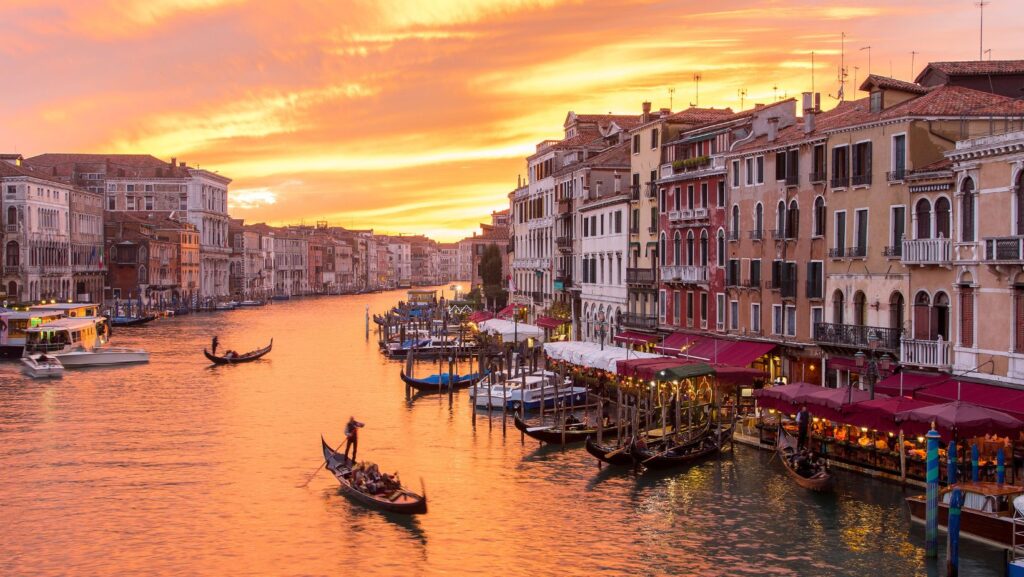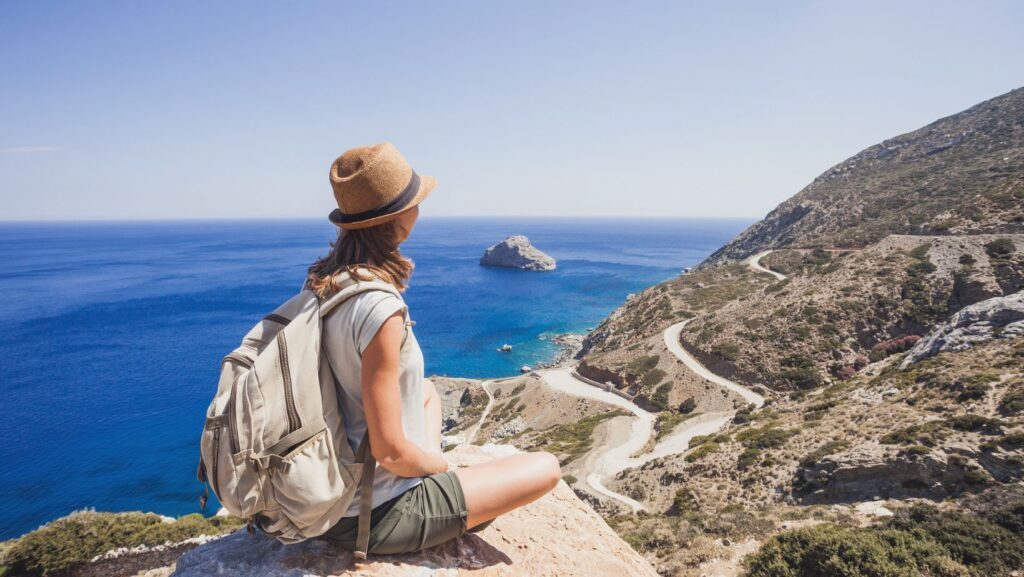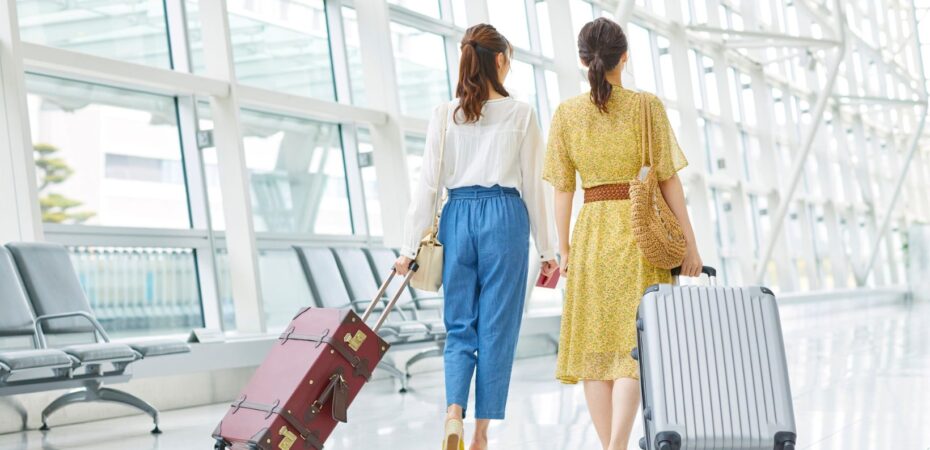By now, we’ve all realized that travel is no longer just about moving from point A to B. It’s about what happens in between — the data, the drama, the digital check-ins, and the moral dilemmas about whether your flight should even take off. The next five years promise to turn that chaos into something wildly different. Think fewer boarding passes, more biometrics, and destinations that feel like something between Black Mirror and Eat, Pray, Love.
The Age of Conscious Wanderers
Remember when people bragged about how many countries they’d been to? That era is fading faster than a budget airline’s legroom. The modern traveler isn’t just counting stamps — they’re counting carbon. Climate change has shoved “sustainable travel” from niche hashtag to default mindset.
In the coming years, expect train routes to make a massive comeback, especially across Europe and Asia, where night trains are being rebranded as “moving hotels.” Airlines are racing to develop carbon-neutral fuels, while eco-lodges built from bamboo and recycled shipping containers are becoming the new five-star standard.
But it’s not just about saving the planet; it’s also about saving face. Travelers are increasingly aware of “climate guilt” — that sinking feeling when you post your Maldives trip while your feed burns with wildfires. The new travel hero isn’t the one who goes farthest; it’s the one who goes wisely.
Geo-Politics Will Redraw the Map
Your next dream destination might depend less on flight availability and more on geopolitics. The world is shifting fast — visas, borders, and alliances included. With regions rethinking tourism policies, expect new travel corridors and surprising “it” spots to emerge.

Take Central Asia, for instance. As the Middle East diversifies its tourism and Europe tightens entry rules, travelers are looking toward places like Uzbekistan or Armenia, which blend rich history with fewer crowds. Digital nomad visas are multiplying, letting you work remotely from a beach hut in one country and a mountain café in another.
Travel may become more regional — shorter, closer, but deeper. The “bucket list” trip to Antarctica might give way to exploring your own continent’s forgotten gems. Think smaller footprints, longer stays, and more meaningful interactions — a kind of slow travel renaissance.
Technology Will Be Your New Passport
Let’s be honest: the travel industry has always loved its gadgets — from selfie sticks to smart suitcases. However, tech will change into necessities in the same five-year period. There is already sneak-creeping biometric boarding, AI-based language translation, and real-time trip personalization in the airports and applications.
And your boarding pass is soon to be your face. Microsoft AI concierge will arrange your schedule before you have even landed, pairing your preferences with local experiences that you had not realized you liked. And AR (augmented reality) glasses could enable you to explore ancient ruins – virtually recreated in front of your face – and tell you who that missing statue was.
The Metaverse Meets the Map
You may roll your eyes at the idea of “virtual travel,” but hold that thought. When tech companies and tourism boards start teaming up, digital worlds become playgrounds for new explorers. Picture attending a Tokyo street festival from your couch — then booking a flight because it looked too good to miss.
Virtual previews will drive real-world decisions. Before committing to that trek in Nepal, you’ll be able to “test” the route through VR. It’s travel planning turned immersive — like trying on destinations before you buy them.
And speaking of innovation…
22Bit is one of the platforms quietly merging travel and gaming. Imagine collecting points and rewards as you explore cities — not just digitally but physically. Somewhere in the middle of this technological revolution, users can access exclusive features through 22Bit login, blending adventure with playful interactivity. The lines between game and journey are blurring, and it’s glorious.
Climatic Change, Disorder, and Adaptability.
There is no use mincing words: climate change will influence all the travel-related choices in the future. Increasing sea level, heat waves and natural disasters are already reshaping the travel map. There are some favorite places, such as Venice, the Great Barrier Reef, even some of Thailand that are running out of time.
Tourism boards are shifting the focus to resilience: constructing flood-resistant resorts, restricting the flow of visitors, or moving whole beach areas inland. In the meantime, people are adapting by reserving flexible dates and avoiding peak seasons and looking to find climate-stable areas – places that are less susceptible to disruptive incidents.
Airline companies can experience turbulence (no pun intended) when carbon taxes and environmental regulations get more severe and flights become more expensive, but less polluting. So, that €19 ticket to Barcelona? Enjoy it while it lasts.
The Emotional Renaissance of Travel.
Travel became therapy, after the pandemic, we all came to know that it is not only leisure. The following tourism trend is on emotional reconnection: the wellness retreats in the far nature, sound baths in the Icelandic caves, or AI-directed meditation hikes. This is changing to meaning as opposed to escapism.
Travelling alone will continue to thrive, although not in the alone wanderer sense, rather in the energy of the main character sense. Silence, nature, and serendipity are helping people to rediscover themselves. The future souvenirs will not be magnets or mugs, but an account of self-discovery.
What Lies Ahead
Then, what will travelling be like in 2030? Suppose the following: you wake up and put on your AR glasses and your AI assistant tells you: Your carbon score is great today. In 20 minutes, there is a train to Vienna. Do you want to upgrade into a bamboo suite? You smile, take your minimalistic backpack, and walk out to the world, not to avoid it, but to know it.

Travel is not only becoming faster and fancier. It is closer to humanity, it is more conscious, it is more interrelated. We are not running away any more. We are traveling, with or without the conscious awareness, with or without the inquisitive tendency, with or without the appropriate proportion of wanderlust in our veins.


 By
By 




